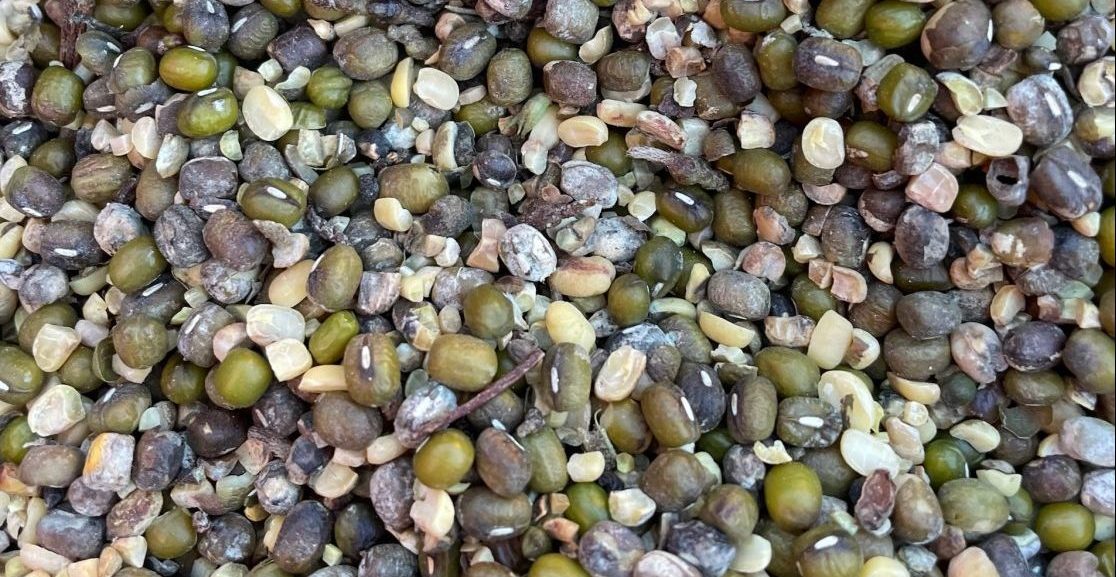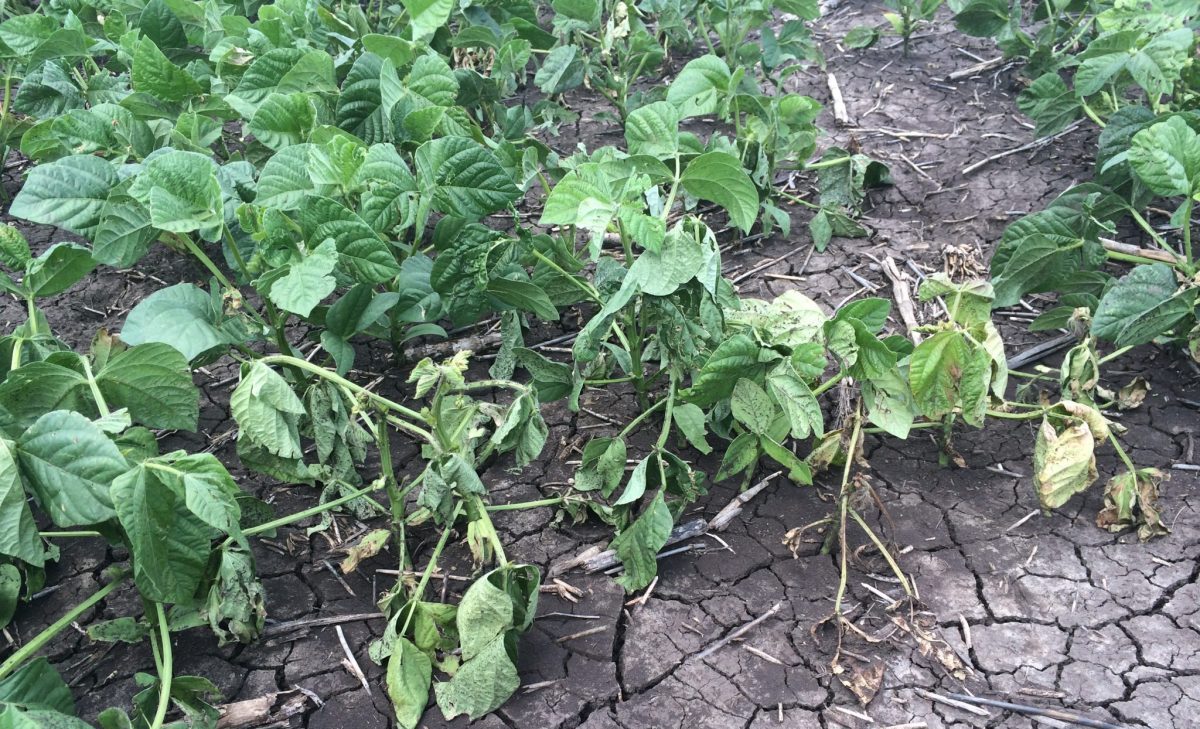
Downgrades were reported across mungbean growing regions due to prolonged rain. Photo: Supplied.
THE MUNGBEAN industry is working to find markets for large volumes of downgraded crops, after months of widespread flooding severely impacted plants in the Queensland and New South Wales growing regions.
It is estimated that about 20 per cent of the crop is yet to be harvested with growers hindered by the prolonged wet conditions.
Australian Mungbean Association (AMA) president Dale Reeves said the industry was looking at harvesting 140-150,000 hectares of mungbeans, but with downgrades and yield losses, he is unsure of how much will translate into processable product.
He said at this stage the AMA is hoping to have 90-100,000 tonnes of exportable mungbeans by the end of the harvest.
Mr Reeves said of all the mungbeans, the late crop and those yet to be harvested will be most affected by downgrades and yield losses.
“A lot of the crops that are coming off now are probably the most vulnerable because they have been in the paddock the longest,” Mr Reeves said.
“The rains have delayed any chance of an earlier harvest and the last two to three occurrences of rain events have severely damaged the quality of the crops.”
Mr Reeves said this season will bring an unusual amount of mungbeans into the stockfeed market.

Dale Reeves
“There is going to be quite a volume of that in the marketplace and at times it is not even fitting into our normal standards for manufacturing and processing, which has been a major issue for the industry to try and do something with.”
He said alongside the reduction in yields, growers are also contending with having potentially 35-40pc of their crop lost during the screening process.
“There has been an opportunity to sell some of it into a splits and hulls market as more of a milling grade, which we don’t normally deal into.
“With the volume of this product, we are certainly trying to access these markets and not have to take the 35-40pc off the growers and reduce their grading losses and try to put more product in the bag, albeit at a lower price.
“We are reinventing the wheel to some extent in terms of getting market access and bringing buyers to the table and that is a slow process compounded by shipping restraints and logistics issues.”
Downgrades cut grower prices
While pushing the product into a stockfeed market brings some value to the grower, the cut in price is substantial.
The processing and manufacturing graded mungbeans are making $1050-1150 per tonne.
It is reported that packers are paying around $450-$500/t inward weight prior to grading for the rain affected crop.
“[Prices] have remained relatively flat throughout the entire season,” Mr Reeves said.
“They have probably firmed a little bit during those wet periods due to execution on contracts and that was probably more of a domestic influence on short positions than it was on price elevations from buyers overseas.
“Anyone who captured better pricing was lucky to be sitting on the right quality and the right timing for delivery to be able to harness any shorts that were seen from packers or exporters needing to execute shipments.”
AgForce Grains president and Warra grower, Brendan Taylor, said half of his crop was severely downgraded and will only fetch stockfeed prices.
“They were looking pretty sad, purely on the amount of time they sat in the weather, and they were downgraded severely back to stockfeed from potentially being processing beans,” Mr Taylor said.
“We finished harvesting ours four or five days ago, and they will be stockfeed.
“It should have been off six weeks ago; it is just purely the prolonged wet weather and the cool conditions that held us up.”
Mr Taylor said he was lucky that the other half of his crop was sufficient quality to reach the manufacturing grade and that he will get some value for the downgraded mungbeans.
He said other growers weren’t as fortunate, with some crop abandonment in the region.
“I am sure that there are some people, given that the quality of the beans or the yield might have deteriorated that much that there have probably been some paddocks around that people have walked away from and not bothered to harvest.
“In those cases, there is probably not that much value in dollar terms, and it is not worth using the fuel to harvest them.”

Fusarium can cause irretrievable damage to a mungbean crop. Photo: The Beat Sheet
Disease management progress
Although this season has brought pain for most mungbean growers, Mr Reeves said recent advancements in plant diseases will help to better set up future crops for success.
He said a Grains Research Development Corporation funded project into fusarium is seeing results.
“It was a major issue last year and reared its head again this year with all the wet weather.
“There has been some really good project work done over the last 12 months that is starting to show some direction in that disease.”
Mr Reeves said the work is focusing on a combination of plant breeding and information gathering research.
“Breeding has taken a big focus in screening for fusarium tolerance in our varieties and that information is only becoming available this year.
“The breeding program is looking for better tolerance or better resistance in varieties.
“But also…we are trying to learn more about this pathogen and trying to understand its habits and its persistence in soils and all the agronomic information that will hopefully assist growers moving forward.”
Mr Reeves said last year growers reported high rates of fusarium.
“The year that it became most prevalent was last year and it probably cost the sector anywhere up to 20 per cent of its yield capabilities.
“It was quite significant, and it is a disease that causes crop abandonment.
“There is just no recovery and there are no treatments per se that are registered currently that would give any safeguard to the crop.
“It is very much about understanding it agronomically and breeding for resistance.”
Grain Central: Get our free news straight to your inbox – Click here



HAVE YOUR SAY